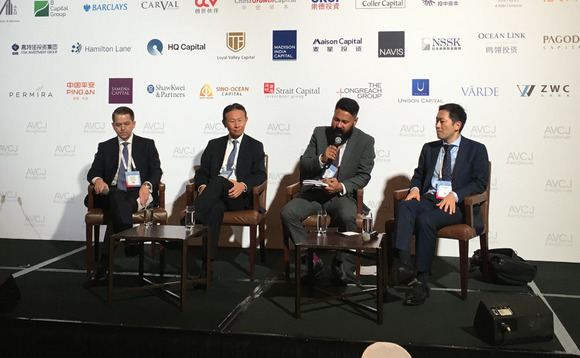
Tech, policy changes the main risks in energy – AVCJ Forum

Technology disruption and short-term policy changes are the two key challenges facing investors in the energy sector, industry participants told the AVCJ Forum.
These risks are amplified by the rise of renewable energy, which as a developing industry entails significant uncertainties in technical project feasibility and regulatory matters. For investors, concerns focus largely on the leading sub-sectors of onshore wind and solar, which have shifted into price-competitive positions versus traditional baseload energy in almost every country, even without subsidies.
Proven segments such as solar panels and wind turbines are seen as the most conservative plays, while underdeveloped areas such as grid infrastructure, storage and transmission offer more pointed risk-reward profiles. Uncertainty in these areas is further enhanced by debate around whether the most effective future developments will be utility-scale or distributed systems that use in-building and containerized batteries.
Patrick Boocock, a managing director and head of Asia at Brookfield Asset Management, expressed confidence in the outlook for distributed systems, including battery storage, rooftop solar, and urban wind installations. However, he believes that the technological aspects of these opportunities means they will not be approachable as traditional energy or infrastructure-style investments.
"In some cases, we come across situations where it's a very good idea in a traditional industry but it's very venture capital-like and sometimes you have to be very broad in your thinking in terms of whether this is a core infrastructure asset, is it a private equity investment, or is it a venture capital investment," Boocock said. "That's arguably an opportunity but also a challenge."
Boocock added that investors will also need to reset their expectations due to the short-term policy changes associated with renewables. Investors are said to have few options in terms of proactive measures for reducing this risk other than playing long-term themes that outlast political hiccups and creating industry lobby groups to influence policy.
Anthony Muh, a senior partner at HRL Morrison, confirmed that short-term policy risk is unavoidable but suggested investors could reduce the risk through counterintuitive geography targeting. He noted that while developing markets were often perceived as having more risky and frequent policy changes in the energy sector versus developed markets, the reality tended to be vice versa.
"I would argue that most investors go into a developed market expecting the policy risk to be lower, and usually they're surprised because the policy risk is higher than they anticipated. In emerging markets, the opposite is true," Muh. "Usually, investors go in [developing markets] expecting the policy risk to be high and forecast for that, and if there's a surprise, it's probably because the risk is on the low side."
Latest News
Asian GPs slow implementation of ESG policies - survey
Asia-based private equity firms are assigning more dedicated resources to environment, social, and governance (ESG) programmes, but policy changes have slowed in the past 12 months, in part due to concerns raised internally and by LPs, according to a...
Singapore fintech start-up LXA gets $10m seed round
New Enterprise Associates (NEA) has led a USD 10m seed round for Singapore’s LXA, a financial technology start-up launched by a former Asia senior executive at The Blackstone Group.
India's InCred announces $60m round, claims unicorn status
Indian non-bank lender InCred Financial Services said it has received INR 5bn (USD 60m) at a valuation of at least USD 1bn from unnamed investors including “a global private equity fund.”
Insight leads $50m round for Australia's Roller
Insight Partners has led a USD 50m round for Australia’s Roller, a venue management software provider specializing in family fun parks.







